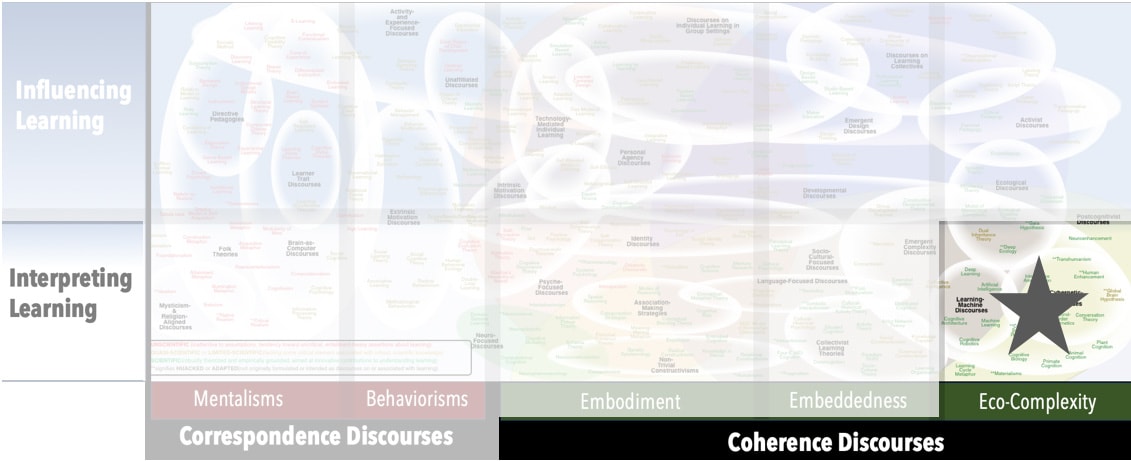Focus
Inquiring into the internal dynamics of adaptive, self-maintaining systemsPrincipal Metaphors
- Knowledge is … current range of functional possibilities
- Knowing is … acting/responding appropriately
- Learner is … adaptive system
- Learning is … adapting, changing
- Teaching is … triggering
Originated
1940sSynopsis
Cybernetic-Systems Discourses are concerned with the means by which elements of adaptive, self-maintaining systems communicate, coordinate, and co-regulate. Such systems can be organic, mechanical, or a combination. Associated discourses include:- Cybernetic Epistemology – a philosophical engagement with matters associated with knowledge, meaning, learning, and learners that emerge in the context of more-than-human cybernetic systems.
- Informatics (K.K. Kolin, 1990s) – a term with multiple meanings – but, in the context of discourses on learning, refers to a blending of Cognitive Science and Artificial Intelligence. Informatics thus researches natural and artificial computational systems, both examining and seeking to influence their structures, algorithms, behaviors, and interactions.
- Technium (Kevin Kelly, 2010s) – the system of technologies and technological evolution as a whole, including all tools, machines, and systems created by humans. It is characterized as an emerging, self-organizing entity that behaves much like a living organism.
Commentary
One of the struggles faced by modern science has been to define “life.” For centuries, the prevailing strategy was to list necessary criteria (e.g., a living form must metabolize, must have some form of locomotion, and must respond to stimuli) – an approach that inevitably included some non-living forms while excluding some living forms. In the 1900s, Cybernetic-Systems Discourses was part of a movement toward another strategy, essentially defining living in terms of learning – that is, as dynamic and adaptive co-participation with/in other forms.Subdiscourses:
- Cybernetic Epistemology
- Informatics
- Technium
Map Location

Please cite this article as:
Davis, B., & Francis, K. (2025). “Cybernetic-Systems Discourses” in Discourses on Learning in Education. https://learningdiscourses.com.
⇦ Back to Map
⇦ Back to List
